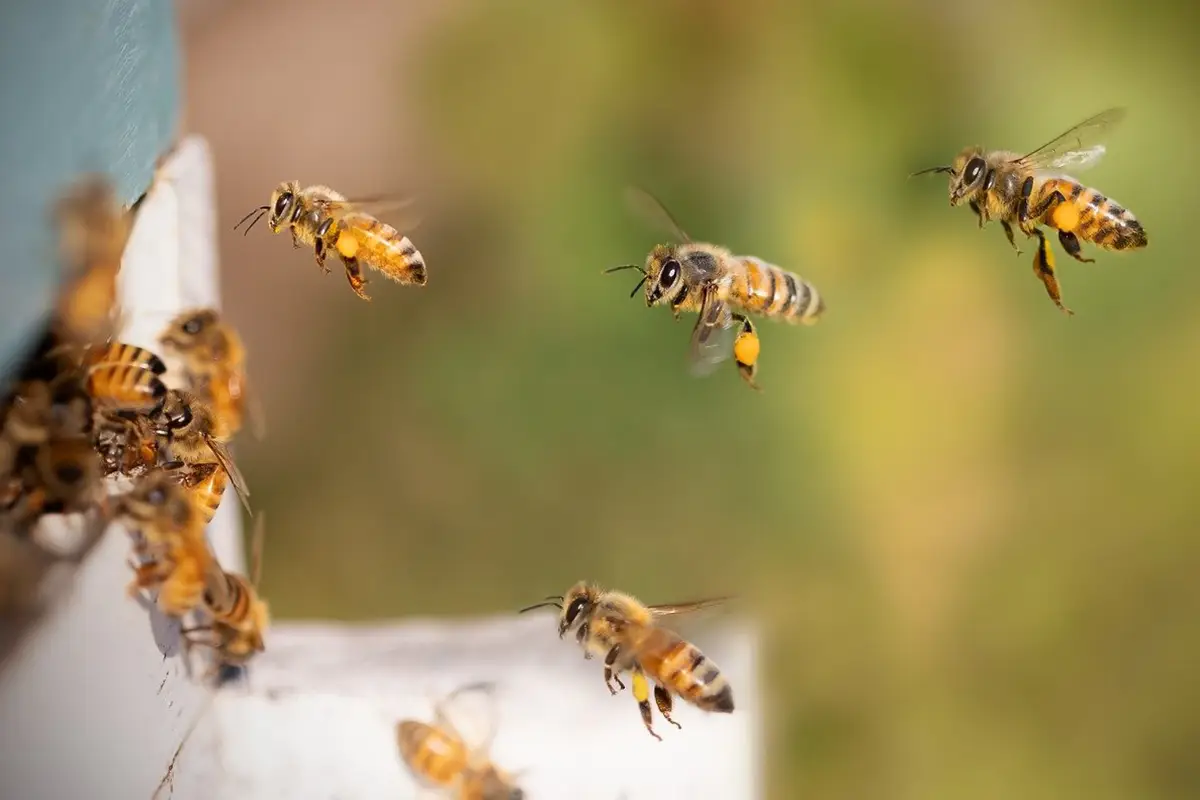
9 Misconceptions About Bees
Bees, have a well-earned reputation for being industrious pollinators, but unfortunately, they have also garnered undeserved notoriety based on misconceptions. From their supposed aggression to their role in honey production, many misconceptions surround these buzzing creatures. Let’s dive into some of the most common myths and set the record straight.
All Bees Sting
This is totally untrue. While many bee species have stingers, not all of them do. That said, male bees, for instance, lack stingers entirely. Moreover, bees don’t go around looking to sting. They only sting as a defense mechanism when they feel threatened.
Honeybees are the Only Important Pollinators
Here is a common misconception about honeybees. While honeybees are crucial, they are just one piece of the pollination puzzle. There are well over 20,000 bee species worldwide, each playing a vital role in pollinating various plants and ensuring biodiversity.
Bees are Always Aggressive
Wow, this one is completely inaccurate. In fact, bees are generally peaceful creatures. They are really more interested in gathering nectar and pollen, than in attacking humans or their pets. That said, it’s important to respect their space and avoid disturbing their nests.
All Honey is Made by Honeybees
Believe it or not, this is a big misconception about honeybees. While honeybees are definitely known for their honey production, other bee species, such as stingless bees and bumblebees, also produce honey. Their honey might be less abundant, but it is equally delicious and nutritious.
All Bees Live in Hives
While honeybees are known for their organized hive structures, other bee species live in solitary nests, in the ground, or even in hollow trees.
Bees are Only Important for Honey Production
This is one misconception that could not be further from the truth. In fact, it truly is a gross underestimation of their importance. Bees are the backbone of our food system, responsible for pollinating up to 75% of the world’s food crops. Without them, our grocery stores would be significantly less diverse.
Bees are Going Extinct
While bee populations are facing threats that include habitat loss, pesticides and climate change, they are not dying out entirely. That said, their decline is a serious concern. We must take action to protect these vital pollinators.
Bees Can’t See Colors
This is untrue. Bees actually have very good vision, particularly for colors, especially blue and ultraviolet. They can even see patterns that humans cannot.
You Should Leave a Beehive Alone
While it’s generally best to avoid disturbing a beehive, it’s also important to remember that some species, like Africanized honeybees, are more aggressive than others. Thus, if you encounter a beehive of Africanize honeybees, it’s recommended that you contact a professional bee removal service.